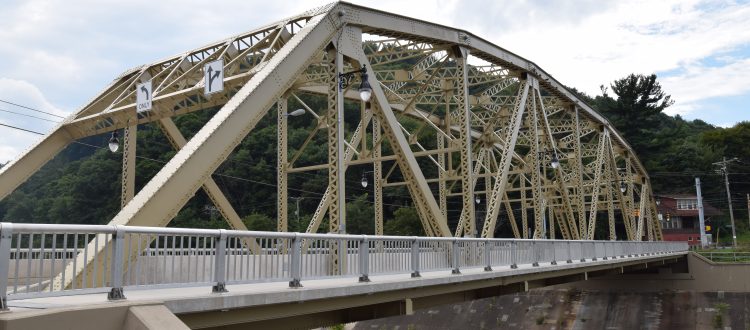NDT’s Role in America’s Bridge Infrastructure
One in nine bridges in the United States in 2013 are rated as structurally deficient. Structurally Deficient (SD) is a rating highway bridges are given by the National Bridge Inventory (NBI) based on the structural evaluation of deck, superstructure, substructure, and culvert. Bridges are given a 0-9 rating and a structural evaluation of 4 or lower qualifies a bridge as structurally deficient. It is reported that over two hundred million trips are taken across these structurally deficient bridges in the nation’s 102 largest metropolitan regions.
Nondestructive testing (NDT) and evaluation is a means of evaluating structural components without damaging them. NDT technicians inspect bridges every two years to determine how well bridges are holding up. These technicians inspect and evaluate the four structural elements of a bridge listed above.
Visual inspection is very common for inspectors to use on bridges. It is also very common for fisherman, boaters, and other passerby’s to see a flaw on a bridge and notify officials to dangerous looking structures in between routine inspections.
Other bridge inspections include magnetic particle inspection and ultrasonic inspection. In recent years, acoustic emission monitoring is a new form of judging the safety of a bridge. Newer bridges are being fitted for this type of inspection. Acoustic emission monitoring is done to aid inspectors on the sound of the structure. As a crack grows bigger, the sound changes and alerts the inspectors on repairs that are needed.
As our nation’s bridge system ages, the need for these inspections is increasing. NDT plays a critical role in our highway safety to make sure that all of our bridges are safe from collapsing.



